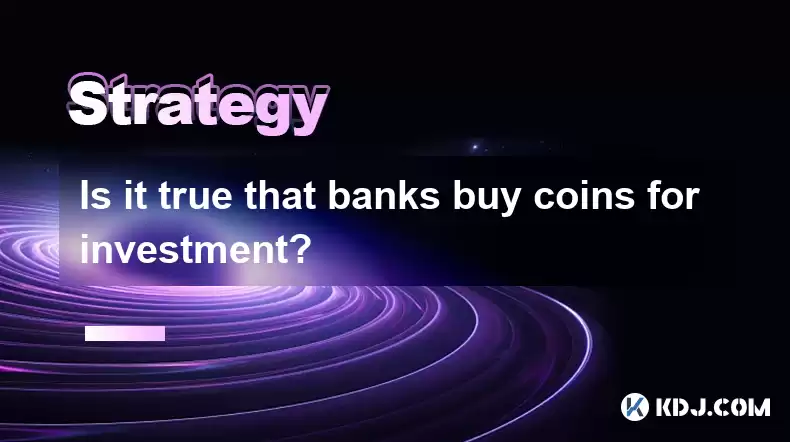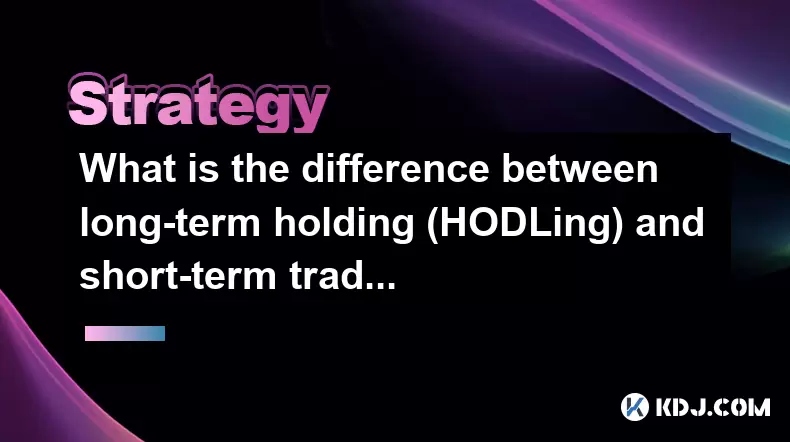-
 Bitcoin
Bitcoin $117700
-1.00% -
 Ethereum
Ethereum $4458
-3.91% -
 XRP
XRP $3.119
0.14% -
 Tether USDt
Tether USDt $1.001
-0.02% -
 BNB
BNB $836.6
-1.56% -
 Solana
Solana $189.5
-3.90% -
 USDC
USDC $0.9998
-0.02% -
 Dogecoin
Dogecoin $0.2335
1.29% -
 Cardano
Cardano $0.9642
1.51% -
 TRON
TRON $0.3539
-1.19% -
 Hyperliquid
Hyperliquid $47.41
-1.84% -
 Chainlink
Chainlink $21.92
-3.28% -
 Stellar
Stellar $0.4286
-0.23% -
 Sui
Sui $3.724
-3.29% -
 Bitcoin Cash
Bitcoin Cash $594.8
-0.78% -
 Ethena USDe
Ethena USDe $1.001
0.04% -
 Hedera
Hedera $0.2501
-2.06% -
 Avalanche
Avalanche $23.96
-4.87% -
 Litecoin
Litecoin $119.0
-2.32% -
 Toncoin
Toncoin $3.473
0.82% -
 UNUS SED LEO
UNUS SED LEO $9.596
0.17% -
 Shiba Inu
Shiba Inu $0.00001301
-0.39% -
 Uniswap
Uniswap $11.03
-0.25% -
 Polkadot
Polkadot $3.935
-2.62% -
 Dai
Dai $1.000
0.01% -
 Bitget Token
Bitget Token $4.564
-1.76% -
 Cronos
Cronos $0.1512
-4.11% -
 Ethena
Ethena $0.7306
-1.09% -
 Pepe
Pepe $0.00001087
-2.68% -
 Aave
Aave $300.2
-4.00%
Is it true that banks buy coins for investment?
Banks' exploration of cryptocurrency investment opportunities highlights the growing interest in digital assets among financial institutions, albeit with cautious considerations due to regulatory uncertainties and security concerns.
Jan 12, 2025 at 10:41 am

Key Points
- Banks' Involvement in Cryptocurrency Investments
- Regulatory Landscape and Institutional Considerations
- Investment Strategies and Portfolio Allocation
- Potential Impacts on the Cryptocurrency Market
- Case Studies of Banks Investing in Cryptocurrencies
Banks' Involvement in Cryptocurrency Investments
- Increased Interest and Exploration: In recent years, a growing number of banks have shown interest in the cryptocurrency market, exploring potential investment opportunities.
- Institutional Cautiousness: However, banks approach cryptocurrency investments with caution due to regulatory concerns, security risks, and the volatile nature of the market.
- Collaboration with Crypto Firms: Some banks have partnered with cryptocurrency exchanges, custodians, and investment firms to gain expertise and navigate the digital asset landscape.
Regulatory Landscape and Institutional Considerations
- Regulatory Clarity Needed: Banks face regulatory uncertainty in many jurisdictions regarding cryptocurrency investments. Clarification and guidelines from regulators are essential for widespread adoption.
- Anti-Money Laundering (AML) and Know Your Customer (KYC) Compliance: Banks must adhere to strict AML and KYC regulations, which can be challenging in the decentralized cryptocurrency ecosystem.
- Custody and Security Measures: Safeguarding cryptocurrency assets is crucial for banks. They must implement robust custody solutions and security protocols to mitigate cyber threats and market volatility.
Investment Strategies and Portfolio Allocation
- Risk Management: Banks adopt various risk management strategies, including diversification, hedging, and monitoring to mitigate exposure to cryptocurrency price fluctuations.
- Investment Horizon: Banks consider long-term investment horizons for cryptocurrency investments, acknowledging the market's volatility and the potential for future growth.
- Portfolio Allocation: Cryptocurrencies are typically a small part of banks' overall investment portfolio, complementing traditional assets such as stocks, bonds, and commodities.
Potential Impacts on the Cryptocurrency Market
- Increased Market Confidence: Banks entering the cryptocurrency market can enhance investor confidence and legitimize the asset class.
- Price Stabilization: Banks' involvement can provide liquidity and stability to the cryptocurrency market, potentially mitigating extreme price swings.
- Innovation and Adoption: Banks' participation can foster innovation within the cryptocurrency ecosystem, including the development of new products and services.
Case Studies of Banks Investing in Cryptocurrencies
- BNY Mellon: In 2022, BNY Mellon launched a digital custody platform for cryptocurrencies, offering storage, trading, and settlement services to institutional clients.
- JPMorgan: In 2021, JPMorgan launched a cryptocurrency unit to offer trading, custody, and advisory services to select institutional clients.
- State Street: In 2023, State Street announced the formation of a new digital asset division to provide custody, trading, and other services to institutional investors.
FAQs
Q: Why are banks interested in investing in cryptocurrencies?
A: Banks see potential for diversification, return enhancement, and catering to client demand for digital assets.
Q: How can banks safely invest in cryptocurrencies?
A: Banks implement risk management strategies, partner with specialized firms, and adhere to stringent security protocols.
Q: What impact will banks' investment in cryptocurrencies have on the market?
A: It can increase confidence, stabilize prices, and accelerate innovation.
Q: Are there any regulatory concerns for banks investing in cryptocurrencies?
A: Yes, banks must navigate uncertain regulatory frameworks and comply with AML and KYC regulations.
Q: What role will banks play in the future of cryptocurrencies?
A: Banks are expected to play a significant role as custodians, facilitators, and innovators in the evolving digital asset ecosystem.
Disclaimer:info@kdj.com
The information provided is not trading advice. kdj.com does not assume any responsibility for any investments made based on the information provided in this article. Cryptocurrencies are highly volatile and it is highly recommended that you invest with caution after thorough research!
If you believe that the content used on this website infringes your copyright, please contact us immediately (info@kdj.com) and we will delete it promptly.
- Kazakhstan's Crypto Leap: Bitcoin ETF and Central Asia's Digital Finance Future
- 2025-08-13 12:45:19
- BlockDAG Presale Blazes Past $371M: Fundraising Frenzy Fuels Crypto Sensation
- 2025-08-13 13:05:21
- Meme Coins: Chasing the 2025 Surge – Which Will Moonshot?
- 2025-08-13 10:25:23
- Bitcoin's Wild Ride: Rally, Pullback, and What's Next
- 2025-08-13 10:25:23
- Bitcoin, Bitmax, and Institutional Demand: A New Era of Crypto Investment
- 2025-08-13 10:45:12
- Solana, ROAM, and Airdrops: What's the Buzz in 2025?
- 2025-08-13 11:35:13
Related knowledge

How to use stop-loss orders to limit potential losses?
Aug 08,2025 at 02:01pm
Understanding Stop-Loss Orders in Cryptocurrency TradingA stop-loss order is a risk management tool used by traders to automatically sell a cryptocurr...

What are the most promising altcoins to invest in?
Aug 10,2025 at 11:42am
Understanding the Role of Private Keys in Cryptocurrency WalletsIn the world of cryptocurrency, private keys are the cornerstone of ownership and cont...

Should I invest in Bitcoin or altcoins?
Aug 13,2025 at 11:35am
Understanding Bitcoin and AltcoinsWhen deciding whether to invest in Bitcoin or altcoins, it's essential to first understand what each represents. Bit...

What are the most important metrics to look at when evaluating a cryptocurrency?
Aug 13,2025 at 11:36am
Market Capitalization: Understanding the Total ValueWhen evaluating a cryptocurrency, market capitalization is one of the most foundational metrics. T...

How to read cryptocurrency charts and use technical analysis?
Aug 08,2025 at 11:08am
Understanding the Basics of Cryptocurrency ChartsCryptocurrency charts are graphical representations of price movements over time. These charts are es...

What is the difference between long-term holding (HODLing) and short-term trading?
Aug 10,2025 at 05:30pm
Understanding HODLing in the Cryptocurrency SpaceThe term HODL originated from a typo in a 2013 Bitcoin forum post and has since become a widely accep...

How to use stop-loss orders to limit potential losses?
Aug 08,2025 at 02:01pm
Understanding Stop-Loss Orders in Cryptocurrency TradingA stop-loss order is a risk management tool used by traders to automatically sell a cryptocurr...

What are the most promising altcoins to invest in?
Aug 10,2025 at 11:42am
Understanding the Role of Private Keys in Cryptocurrency WalletsIn the world of cryptocurrency, private keys are the cornerstone of ownership and cont...

Should I invest in Bitcoin or altcoins?
Aug 13,2025 at 11:35am
Understanding Bitcoin and AltcoinsWhen deciding whether to invest in Bitcoin or altcoins, it's essential to first understand what each represents. Bit...

What are the most important metrics to look at when evaluating a cryptocurrency?
Aug 13,2025 at 11:36am
Market Capitalization: Understanding the Total ValueWhen evaluating a cryptocurrency, market capitalization is one of the most foundational metrics. T...

How to read cryptocurrency charts and use technical analysis?
Aug 08,2025 at 11:08am
Understanding the Basics of Cryptocurrency ChartsCryptocurrency charts are graphical representations of price movements over time. These charts are es...

What is the difference between long-term holding (HODLing) and short-term trading?
Aug 10,2025 at 05:30pm
Understanding HODLing in the Cryptocurrency SpaceThe term HODL originated from a typo in a 2013 Bitcoin forum post and has since become a widely accep...
See all articles

























































































